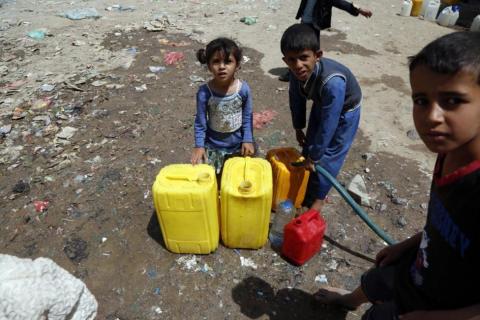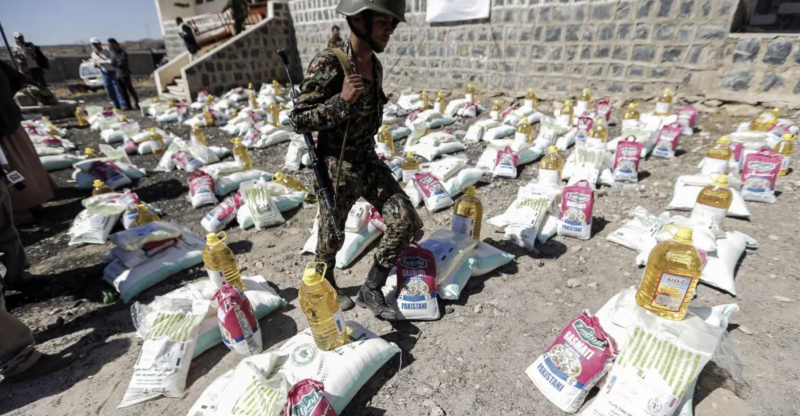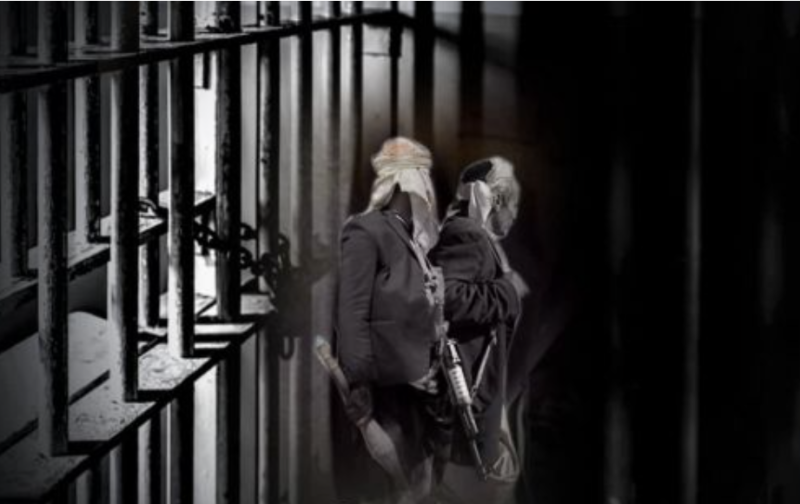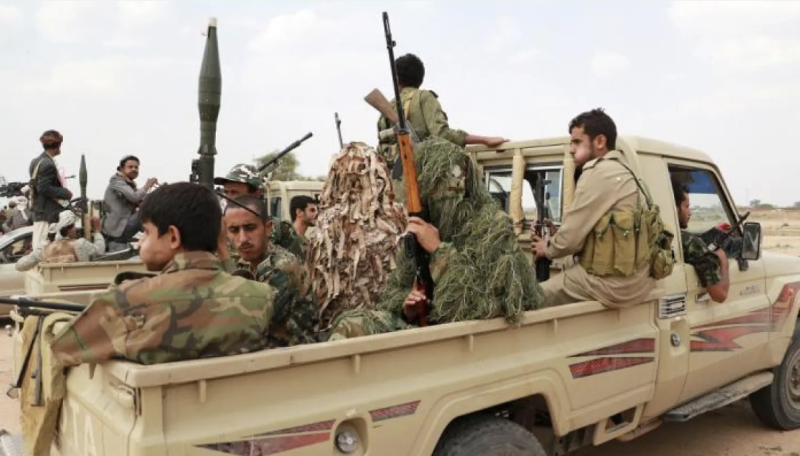Yemen's war: 1,000 newborn babies have died in just two years


At just two MSF hospitals in cities on the front line, 1,018 newborns died between 2016 and 2018 and mothers are also dying .
Thousands of newborn babies are feared to be dying because of the effects of the war in Yemen.
At just two hospitals run by Medecins Sans Frontieres (MSF), in the front line city of Taiz and the battle weary city of Abs, more than 1,000 newborn children died in two years, despite their mothers reaching the medical facilities.
Many more are thought to be dying as their mothers try to reach other hospitals, or during home births where mothers are unable to get the help they need.
MSF say the effects of war that are leading to baby deaths include:
:: Roadblocks or checkpoints slowing down mothers in labour
:: Front lines of battle blocking their route to hospital
:: Fuel prices forced up by blockades making it harder for people to afford to get to hospital
:: Destroyed or damaged medical facilities mean people have to go further to reach help
:: Medical staff being in short supply due to wages not being paid.
The civil war in Yemen is said to have killed up to 13,600 people in fighting, according to official UN figures from 2017, but millions more have been affected.
Front lines criss-cross the country as a result of the ongoing conflict between Saudi-led forces fighting for the country's UN-backed government in exile and Iran-backed Houthi rebels.
Caroline Ducarme, MSF's head of mission in the capital Sanaa, Said it was not just newborns who were dying, it was mothers in childbirth as well.
She said: "We do see a high number of mothers that as a result of complication or late arrivals are arriving with severe bleeding and it is too late for us to save their lives.
"There is the problem of the newborns but the mother is another thing too.
"We cannot put a figure on the number of pregnant women who are affected. We only see the ones who make it. We know there are a lot of women who don't make it."
Ms Ducarme described how, just a few days ago, a women died because she had to frantically scramble together money for a taxi and arrived at the MSF's Taiz Houban hospital too late to be saved.
The expectant mother had previously been identified by doctors as high risk and probably in need of a caesarean, and started bleeding ahead of her due date.
She lived two to three hours away but Ms Ducame said her husband told how it took "almost a full day" to collect the money they needed to travel.
Ms Ducarme said the problem of high fuel prices has made it very hard for people who are already poor to travel to the few hospitals there are.
With so few surviving medical facilities in the worst affected areas, some have to travel many hours to get urgent medical help.
Ms Ducarme explained: "It's poverty but also, over the last few weeks, there have been fuel limitations and the prices of the fuel increased a lot and last week it reached a peak.
"A vessel has now been allowed in and so the situation is not so bad but in the last few weeks there was a shortage of fuel so people cannot afford to travel."
In the last month, petrol prices went up to 750 Yemeni riyals a litre (£2.30), compared with 125 Yemeni riyals (37p) a litre before the war began in 2015.
In addition, journeys that were taking as little as 15 minutes from one side of Taiz to MSF's hospital in Taiz Houban are now taking six hours because they have to go through checkpoints.
Taiz, a city that once held 600,000 people, has been the site of some of the fiercest fighting in the conflict between government-led forces and the Houthis, according to the International Crisis Group, and has been besieged since 2017.
MSF's Houban hospital is on the Houthi side of the line of control.
In Abs in April, several days of intense fighting reportedly forced 18,000 people to flee their homes.
But Ms Ducarme says that the same problems occur in cities across the war-torn country: "It's also across the country in places like Hodeidah, where we are seeing it's the same. In many places in the country we just hear similar challenges.
"If they are not directly linked to the war, they are linked to the secondary consequences of the war."
The 1,018 newborns who died in MSF's Taiz Houban and Abs hospitals because they were too sick, or the complications too advanced for them to survive, represent about 3% of the babies born.
The precise figures for the number of newborns which die across the whole country are difficult to gauge, as statistics are hard to collect.
The World Health Organisation's most recent figures - that 23,000 neonatal deaths occurred across the country as a whole - relate to 2015, when the war began.
The World Bank's most recent figure for the number of infants who die before the age of 12 months (from 2017) is 4.3% - a rate which was steeply declining until 2012 but has been flat ever since.
The rate of infant mortality in Britain, by comparison, is 0.4%.
AFP.

Taiz – Human rights defenders and humanitarian activists have accused community committees in Yemen’s Taiz governorate of involvement i…

Sana'a -- A groundbreaking local investigative report has revealed that the Houthi militia in Yemen has been using chemical substances and narcotic…

Al‑Bayda — Human rights sources revealed that Houthi militias have re‑arrested a Yemeni citizen in Al‑Bayda governorate, central Yemen, after…